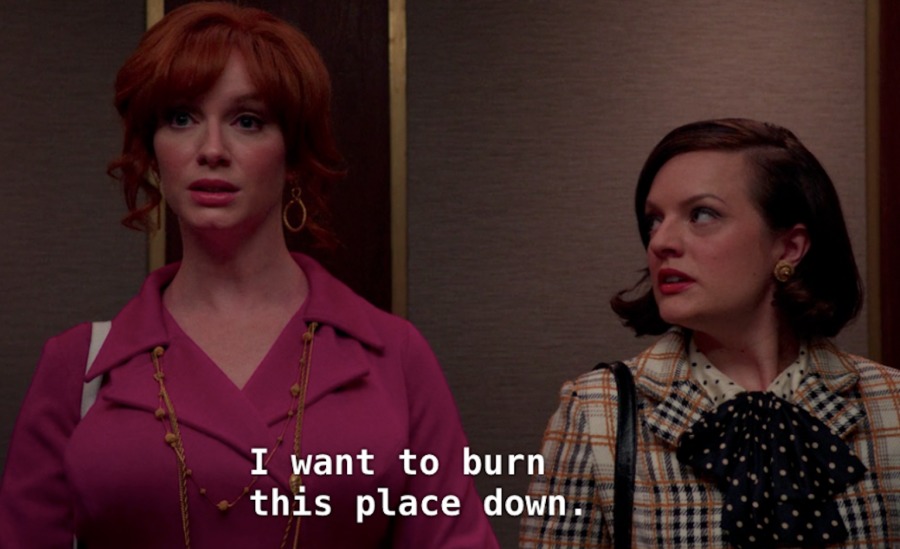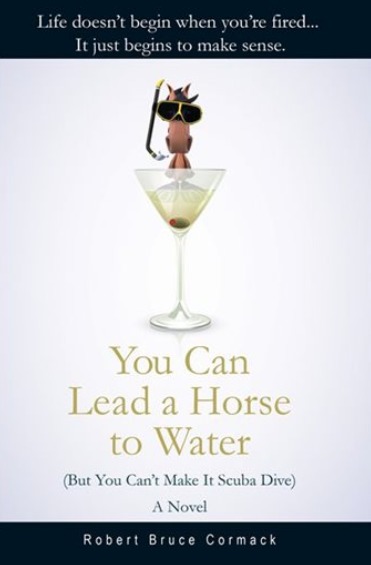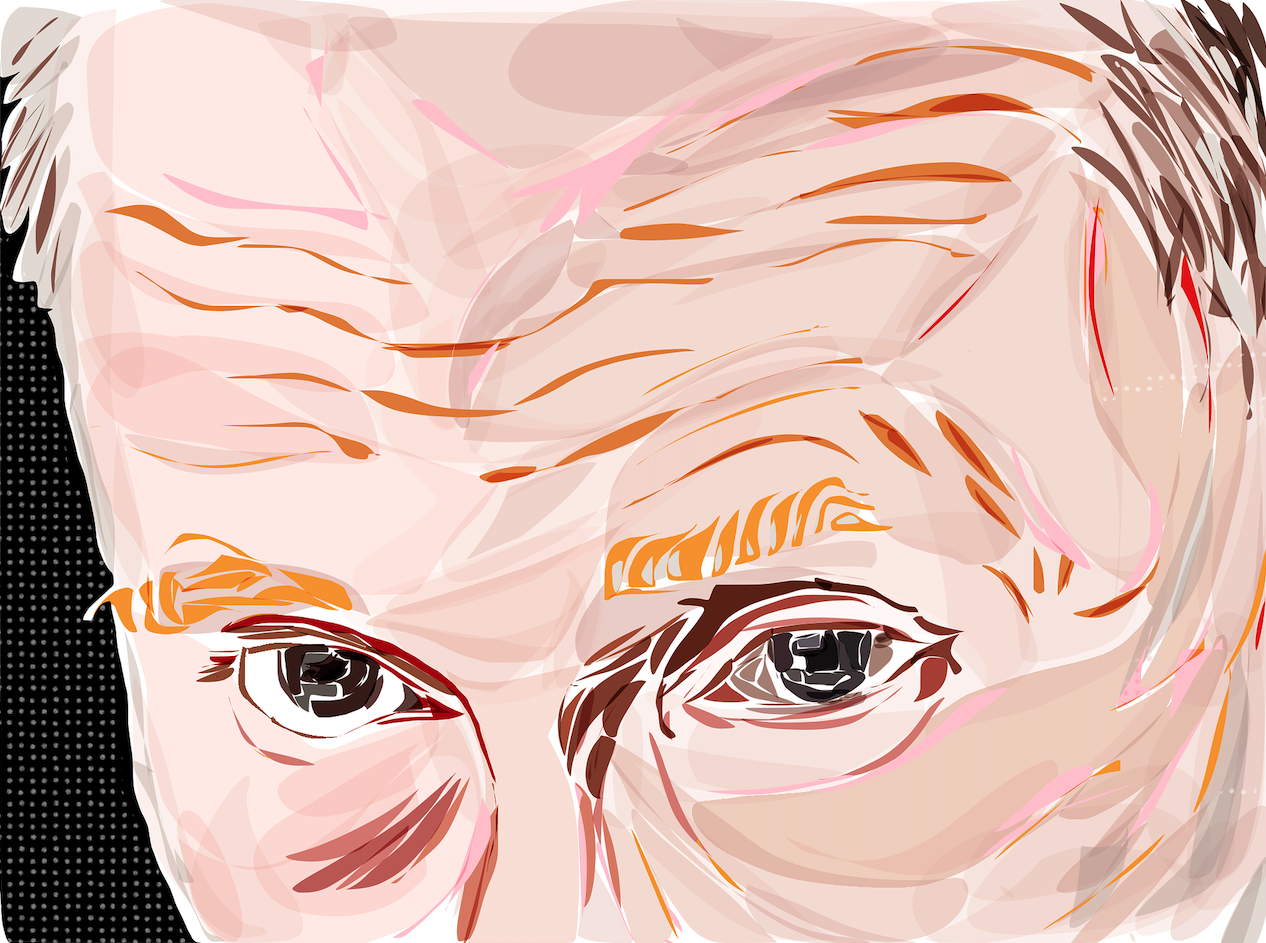The Dog Days of Advertising.
Advertisers need to stop complaining about toxic environments and realize they’re the toxic environment.

“I’m not offended by dumb blonde jokes because I know I’m not dumb, and I also know I’m not blonde.” Dolly Parton
Advertising is having a tough time these days. A Bellwether report came out suggesting returns aren’t matching investment. Agencies took some heat, but social media took even more. Some of the biggest corporate sponsors blame them, saying fake news, sexism and toxic kiddie content, is lowering our trust, making it harder to seem, well, respectable.
“It’s acutely clear,” said Unilever’s chief marking officer, Ken Weed, at the Interactive Advertising Bureau’s Annual Leadership Meeting in Palm Desert, “that people are becoming increasingly concerned about the impact of digital on well-being, on democracy and truth itself.”
Well, when you spend over two billion on social media alone, you don’t want the environment cheapening your own image. Unfortunately — sorry Ken — that isn’t the problem. Advertising simply isn’t matching the public’s perception of truth which is on a sliding scale at the best of times.
The last truth was Colonel Sanders telling us he had a secret recipe. The man was delirious. His secret list of ingredients was the product of bad memory and guilt from killing millions of chickens.
Crazy as this may sounds, applying a “truth barometer” to the viewing public is like believing traditional news is the gatekeeper of truth. There is no truth, there’s no gatekeeper. The last truth was Colonel Sanders telling us he had a secret recipe. The man was delirious. His secret list of ingredients was the product of bad memory and guilt from killing millions of chickens.
What the Bellwether Report should be talking about — and Ken Wood, for that matter — is how staid and dreary advertising has become. It’s no match for the outside world — and we’re not talking about lies. We’re talking about the real truth, which goes beyond Dolly Parton and, needless to say, Donald Trump.
The real truth is, advertising isn’t matching weird, and we’re a weird bunch, more interested in a guy losing his hunting license because his dog shot him. How does that stand up against someone dancing their way to the fridge for a pudding cup, or a family smiling over waffles like opium addicts.
America believes in the strong and the free, but when your dog is firing at you like it’s duck season, you start wondering where you draw the line on freedoms and dog snacks.
It should be weird enough, or dumb enough, but advertisers seem to think slice-of-life commercials represent the goodness of American life. We don’t care about goodness. America believes in the strong and the free, but when your dog is firing at you like it’s duck season, you start wondering where you draw the line on freedoms and dog snacks.
If Dolly Parton is considered a dumb blonde, we’re in trouble, and no amount of social media cleansing will get rid of what we really are, and that’s somewhere between a trigger-happy dog and a congressman suggesting America sell Montana to Canada.
As a Canadian, I can tell you honestly, we don’t want Montana. The one trillion price tag is a tad rich, and we’ve got our own problems. During a recent flood, a woman went on Facebook asking why people were driving in areas still washed over by flood waters and ice pack. “This is the land of the free,” a woman responded, filming her pickup floating away.
Advertisers have to know their audience, and that audience isn’t thinking about democracy or even their own well-being. They’re watching kids flying kites in hurricanes and kissing Rottweilers that don’t want to be kissed.
“It was mine and it didn’t come crashing down on your place. I threw it on your yard to get the coyotes off your lawn.”
The funniest thing I saw the other day was a Facebook message saying, “Just rescued a tall black garage bin that came crashing into my house. Please put your address on your bin. Sure helps in storms like this.” Kris Walleyn responded, “It was mine and it didn’t come crashing down on your place. I threw it on your yard to get the coyotes off your lawn.”
Unilever — and all advertisers — have to get wise. Fake news and toxic content isn’t the problem. Consumers like Kris Walleyn are simply funnier and more entertaining than you are. That makes them human, and if advertising has lost anything, it’s humanness. Humour and humanness go hand in hand.
Let’s go back to the early 70s and a commercial that still resonates today. Howie Cohen, a copywriter with Wells Rich Greene, was celebrating one night — eating, in other words — and when he got home, he said, “I can’t believe I ate the whole thing.” It went on to become one of the most recognized lines in advertising history and made Alka Seltzer a lot of money.
“The best lines come out of real life,” Cohen explained, something he and many copywriters of the 60s learned through agencies like Doyle Dane Bernbach. As Bill Bernbach once said, “You’ve got to say something in a way that people will feel in their gut.”
Well, Unilever hasn’t done that in years. Dove comes close, but talking in a language that feels human isn’t simply saying, “I understand you.”
Well, Unilever hasn’t done that in years. Dove comes close, but talking in a language that feels human isn’t simply saying, “I understand you.” If you really did understand, you wouldn’t have to keep saying it.
And what does anyone understand about the consumer these days? Bill Gates must understand something or he wouldn’t be the second richest person in the world. Except he’s so far removed from human beings, he went on the Ellen DeGeneres show, and couldn’t even figure out what a container of Tide Pods cost. Yet he can honestly say he’s in nearly every home in America.
He probably is, but he still doesn’t know diddly about Americans. If anything, he knows more about Africans, which is fine since Africans need all the help they can get, but Gates is clueless about America, and Microsoft itself may hold the record for the dullest advertising in the country’s history.
That’s not to say there aren’t worse advertisers. The fakes are out there, banging their drum, telling us social media is toxic. It’s not a question of toxicity. It’s a question of clueing in to reality.
No blockbuster won a damn thing of any significance. What does that tell us?
If social media is guilty of anything, they’ve shown too much reality. We’ve been tricked into believing it’s the only truth. What are they going to compare it to? It’s like the movies. We think everyone wants blockbusters, yet the last Academy Award winners were all very human portrayals. No blockbuster won a damn thing of any significance. What does that tell us?
It tells us we need more humanity in advertising. We need to stop believing our weird — or our need for weird — is truth. And we need advertisers like Unilever to stop complaining about toxic environments and realize they’re the toxic environment.
But most of all, we need “I can’t believe I ate the whole thing.”
Robert Cormack is a novelist, journalist and blogger. His first novel “You Can Lead a Horse to Water (But You Can’t Make It Scuba Dive)”is available online and at most major bookstores (now in paperback). Check out Yucca Publishingor Skyhorse Pressfor more details.

Articles from Robert Cormack
View blog
This could (and should) change your writing entirely. · “It’s better to fail at originality than suc ...

When you start dispersing crowds with James Blunt songs, it makes you wonder if the world is funny o ...

It could be worse than losing. · “We are what we pretend to be, so we must be careful what we preten ...
Related professionals
You may be interested in these jobs
-
Psychoéducateur(trice)
Found in: Talent CA C2 - 3 days ago
CIUSSS du Centre-Ouest-de-l'Île-de-Montréal Trois-Rivières, Canada TC - Temps completMandat · Défis · Tu es reconnue pour faire preuve d'empathie, de bienveillance, d'ouverture d'esprit et d'écoute? Ta place est parmi nous · Le CIUSSS MCQ est une équipe de plus de êtres humains uniques qui collaborent ensemble afin d'améliorer la santé et le bien-être des gens. ...
-
asphalt raker
Found in: Talent CA 2 C2 - 1 day ago
Park-Aid Asphalt and Maintenance ltd. Nisku, CanadaEducation: · Expérience: · Education · No degree, certificate or diploma · Work site environment · Outdoors · Noisy · Dusty · Hot · Work setting · Urban area · Various locations · Construction site · Tasks · Pave and rake asphalt · Construction specialization · Roads and bridge ...
-
cook
Found in: Talent CA 2 C2 - 23 hours ago
JIMMY THE GREEK Winnipeg, CanadaEducation: · Expérience: · Education · Secondary (high) school graduation certificate · Tasks · Prepare and cook complete meals or individual dishes and foods · Inspect kitchens and food service areas · Train staff in preparation, cooking and handling of food · Order supplies a ...




Comments
Robert Cormack
5 years ago #6
Proma Nautiyal
5 years ago #5
Robert Cormack
5 years ago #4
Yes, always liked Brian and Ian. Ian and I occasionally converse on LinkedIn. Those days of creative advertising were a lot of fun, especially the discussions at Hemingway's and Southside Charlie's with guys like Peter Proudman and Harry Yates. Good stories, good histories, good advertising. A few of us started out in sales (me selling shoes). We new how to make a sale. That may be key.
Robert Cormack
5 years ago #3
Jim Murray
5 years ago #2
Paul Walters
5 years ago #1